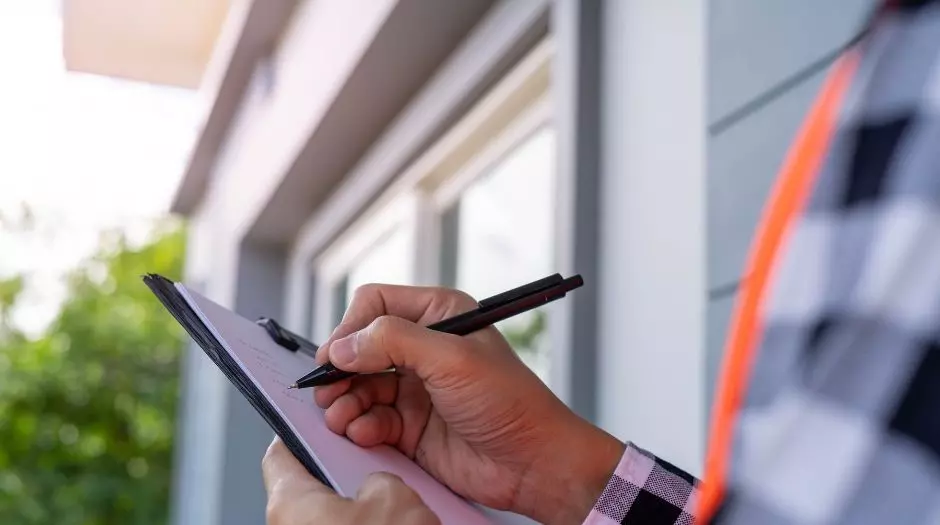The Ins and Outs of Home Inspections in Real Estate

The Ins and Outs of Home Inspections in Real Estate
When buying or selling a home, a thorough home inspection is an essential step to ensure the property's safety and value. Home inspections provide an unbiased evaluation of a property's condition, uncovering potential issues that might not be visible during a casual viewing. This process helps buyers make informed decisions and negotiate repairs or price adjustments, while sellers can address any problems before listing to avoid surprises later.
In this blog, we'll explore the fundamentals of home inspections, including what they entail, how they are conducted, and common issues that may arise. We'll also discuss how to choose a qualified home inspector and interpret the inspection report. Whether you are a buyer wanting peace of mind or a seller aiming for a smooth transaction, understanding the ins and outs of home inspections is crucial for a successful real estate experience.
Key Takeaways
- Essential for Real Estate: Home inspections are crucial for both buyers and sellers, providing a detailed assessment of a property's condition and uncovering hidden issues.
- Comprehensive Evaluation: A typical inspection covers structural components, major systems (plumbing, electrical, HVAC), and both interior and exterior features, including additional structures.
- Preparation and Process: Sellers should ensure the property is accessible and operational, while buyers should research and select a qualified inspector. The inspection report highlights issues from minor repairs to major concerns.
- Interpreting the Report: Understanding the report involves identifying and prioritizing critical issues, negotiating repairs, and addressing both urgent and minor repairs.
- Cost Considerations: Typical inspection fees range from $300 to $500, with additional costs for specialized tests. The investment in a home inspection can lead to significant long-term savings by preventing costly future repairs.
- Choosing the Right Inspector: Ensure the inspector is licensed, experienced, and well-reviewed. Ask relevant questions to confirm they meet your needs.
- Role of Buyers and Sellers: Buyers should attend inspections and focus on significant findings, while sellers should prepare the home and be ready to address issues or negotiate terms.
What is a Home Inspection?
A home inspection is a comprehensive assessment of a property's condition, performed by a certified inspector. The purpose of a home inspection is to provide an objective evaluation of the home's current state, identifying any existing or potential issues that could affect its value or safety. This essential step in the real estate process helps buyers make informed decisions and negotiate necessary repairs or adjustments.
A typical home inspection covers various aspects of the property, including the foundation, roof, electrical systems, plumbing, HVAC systems, and structural components. Inspectors also examine interior and exterior features, such as walls, windows, doors, and insulation, as well as additional structures like garages and attics. By conducting a thorough inspection, potential problems are brought to light, ensuring transparency and peace of mind for both buyers and sellers.
The Home Inspection Process
The home inspection process begins with thorough preparation from both buyers and sellers. Sellers should ensure the property is accessible and all utilities are operational. Buyers, on the other hand, should research and hire a qualified inspector.
During the inspection, the inspector will meticulously examine the property's major systems and components. This includes evaluating the foundation, roof, plumbing, electrical systems, and HVAC systems. The inspector will also check the structural integrity of the home, as well as inspect interior and exterior features like doors, windows, walls, and insulation.
After the inspection, the inspector will provide a detailed report highlighting any issues found, ranging from minor repairs to major concerns. This report serves as a crucial tool for buyers to understand the condition of the home and make informed decisions. Sellers can also use this information to address problems before listing or to negotiate repairs with potential buyers.
Key Components of a Home Inspection
A home inspection thoroughly evaluates the property's key components to ensure it is safe and in good condition. Structural components, including the foundation, walls, and roof, are carefully examined for signs of damage or wear that could compromise the building's integrity.
The inspection also covers major systems such as plumbing, electrical, and HVAC. The operation of the house depends on these systems, and any problems could result in expensive repairs. Inspectors check for leaks, proper wiring, and efficient heating and cooling.
Additionally, the inspection includes a review of both interior and exterior features. Doors, windows, siding, and insulation are assessed to ensure they are in good condition and provide adequate energy efficiency. Other critical areas, like attics, basements, garages, and any additional structures, are also inspected to identify potential problems. By examining these key components, a home inspection provides a comprehensive overview of the property's condition.
Common Issues Found in Home Inspections
Home inspections often reveal a range of issues, from minor defects to major concerns. Major issues typically include foundation problems, which can lead to structural instability, roofing issues that may cause leaks, electrical hazards like outdated wiring, and plumbing leaks that can result in water damage and mold growth.
Minor issues, while less severe, still require attention. These can include cosmetic defects such as chipped paint, minor cracks, or worn-out fixtures. Addressing these minor repairs can enhance the property's appearance and value.
Health and safety concerns are also crucial findings in home inspections. Inspectors commonly identify the presence of mold, which can affect indoor air quality and health. Asbestos and lead paint are hazardous materials often found in older homes, posing serious health risks if not properly managed. Radon, a radioactive gas, is another critical concern, as prolonged exposure can lead to lung cancer. Identifying and mitigating these issues is essential for ensuring a safe living environment.
How to Choose a Home Inspector
Choosing the right home inspector is crucial for a thorough and accurate assessment. Start by checking credentials, ensuring the inspector is licensed and certified by reputable organizations like the American Society of Home Inspectors (ASHI) or the International Association of Certified Home Inspectors (InterNACHI). These certifications indicate a level of professional knowledge and adherence to industry standards.
Experience is another critical factor. An experienced inspector is more likely to identify subtle issues that a less seasoned inspector might overlook. Look for inspectors with several years of experience and a solid track record.
Reviews and references provide insight into an inspector's reputation. Check online reviews and ask for references from previous clients to gauge their satisfaction with the inspector's services.
Before hiring, ask key questions such as, "What does your inspection cover?" and "Can I attend the inspection?" These questions help ensure the inspector's services align with your needs and expectations, providing peace of mind in your home buying process.
The Role of the Buyer and Seller During the Inspection
During a home inspection, both buyers and sellers have important roles to play. From the buyer’s perspective, it’s crucial to attend the inspection. This allows buyers to ask questions and understand the condition of the property firsthand. Buyers should focus on significant issues highlighted by the inspector, ensuring they understand the implications and potential costs of any repairs. Buyers have the right to request repairs or negotiate the purchase price based on the inspection findings.
For sellers, preparing for the inspection is key. This means ensuring the home is clean, accessible, and all systems are operational. Addressing obvious issues beforehand can lead to a smoother inspection process. After the inspection, sellers should be ready to respond to the findings. This may involve making necessary repairs, offering credits, or renegotiating the sale terms. Being proactive and transparent helps facilitate a successful transaction for both parties.
Interpreting the Home Inspection Report
Interpreting the home inspection report is crucial for making informed decisions. Understanding the report begins with carefully reading the summary and detailed findings. Look for issues categorized by severity, typically ranging from minor defects to major concerns. Pay attention to items flagged as safety hazards or requiring immediate attention.
Prioritizing repairs involves distinguishing between critical and non-critical issues. Immediate attention should be given to structural problems, electrical hazards, plumbing leaks, and any health and safety concerns like mold or asbestos. Less urgent items, such as cosmetic defects or minor repairs, can be addressed later.
Negotiating repairs based on the report is a common practice. Buyers can request the seller to fix significant issues or offer a credit towards the repair costs. It’s essential to be reasonable and focus on major problems that impact the home's value or safety. Effective negotiation can lead to a fair agreement, ensuring both parties are satisfied with the transaction.
Costs Associated with Home Inspections
Understanding the costs associated with home inspections is essential for budgeting. Typical inspection fees range from $300 to $500, depending on the property's size, age, and location. This fee covers a comprehensive evaluation of the home's structural components, systems, and overall condition.
Additional tests might incur extra costs. Specialized tests, such as radon, mold, or termite inspections, can add $100 to $300 to the total expense. These tests are crucial for detecting health hazards and preventing costly future repairs.
While the upfront costs may seem high, home inspections offer significant long-term savings. By identifying potential issues early, buyers can avoid expensive repairs and negotiate necessary fixes before closing the deal. Addressing problems before they escalate ensures the home's safety and functionality, ultimately protecting the buyer's investment and providing peace of mind. Investing in a thorough home inspection is a smart financial decision for any prospective homeowner.
Frequently Asked Questions (FAQs)
Home inspections often raise common questions and misconceptions. One frequent concern is whether home inspections are really necessary. Experts agree that they are crucial for uncovering hidden issues that could affect a home's safety and value. A home inspection provides a detailed understanding of a property's condition, helping buyers make informed decisions.
Another common question is about the cost and whether it's worth it. While inspection fees can be a few hundred dollars, they are a small investment compared to the potential cost of major repairs discovered post-purchase. When weighed against the possible costs of hidden issues, the cost of an examination is negligible.
Many also wonder if an inspection is needed for new homes. Even new constructions can have defects, making inspections important for ensuring all systems are up to standard. Addressing these concerns ensures a smoother home buying or selling experience.
Conclusion
In conclusion, home inspections play a vital role in the real estate process, offering a detailed evaluation of a property's condition and uncovering issues that might not be immediately apparent. From understanding what a home inspection involves to interpreting the report and handling associated costs, each step is crucial for both buyers and sellers. Buyers gain peace of mind and can make informed decisions, while sellers can address problems before they affect the sale. By choosing a qualified inspector and carefully reviewing the findings, both parties can ensure a smoother transaction and protect their investments. Ultimately, a thorough home inspection is an invaluable tool for a successful real estate experience.
Categories
Recent Posts










